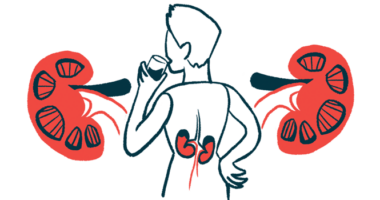Risk of Complications Increases with Patient’s Age for Thyroidectomy, But Not for Hypoparathyroidism

Contrary to other thyroid-related complications, the incidence of hypoparathyroidism in patients who undergo a thyroidectomy — a common complication associated with this type of surgery — tends to decrease between the ages of 65 and 85, a study found.
The study, “Age-Related Trends of Patients Undergoing Thyroidectomy: Analysis of US Inpatient Data from 2005 to 2013,” was published in the journal Otolaryngology-Head and Beck Surgery.
As disease prevention and treatments continue to improve, physicians will be required to care for an increasingly aging population. By 2030, estimates suggest that about 1 in every 5 Americans will be 65 years old.
“Given the expected increase in the age of patients, we must consider the challenges that may arise as a direct result,” researchers wrote.
Older age is almost always associated with a higher prevalence of disease, including benign and malignant thyroid disease.
Patients with thyroid disease often undergo a thyroidectomy, a surgical procedure that involves removal of all or part of the thyroid gland. But no consensus exists on whether thyroidectomy is as safe in the elderly population as compared to younger patient groups.
Using a large national database known as the Nationwide Inpatient Sample (NIS), researchers at Rutgers New Jersey Medical School set out to investigate the clinical trends by age in people with thyroid disease who undergo thyroidectomy.
The team identified 414,079 thyroidectomy cases from 2005 to 2013 and stratified these patients by age into four groups: younger (less than 65 years old) — 75.6% of all cases, advanced age (65-74) — 16.3% of cases, elderly (75-84) — 7.2%, and super-elderly (85 years and older) — 0.9%.
Next, researchers evaluated complications, outcomes, demographics, length of stay, and hospital charges in each of the four groups.
Results indicated that there was a significant difference with regards to length of stay at the hospital, total hospital charges, and mortality throughout the different age groups, all trending upward with increasing age.
Regarding complications, the incidence of recurrent laryngeal nerve injury (damage to nerves attached to the voice box), blood transfusions, and acute cardiac complications also increased with age.
However, the incidence and odds of hypoparathyroidism, which is seen as a common complication associated with thyroidectomy, was lower in the advanced age and elderly groups as compared with the younger group.
“[C]ompared with their younger counterparts, patients of advanced and elderly age had decreased odds of clinical hypoparathyroidism, perhaps due to more stringent administration of prophylactic calcium pre- or postoperatively,” the researchers wrote.
Patients 75 years or older who underwent thyroidectomy had an increased risk of mortality compared to their younger counterparts.
“In this population, length of stay, total hospital charges, and thyroid-related complications, such as blood transfusion and RLN [recurrent laryngeal nerve] injury, increased linearly with increasing patient age,” the team said. “Furthermore, patients aged [more than] 75 years had increased odds of mortality than did those of younger ages.”
The authors hope that this information will help to guide pre- and postoperative care for older patients who are undergoing a thyroidectomy.






